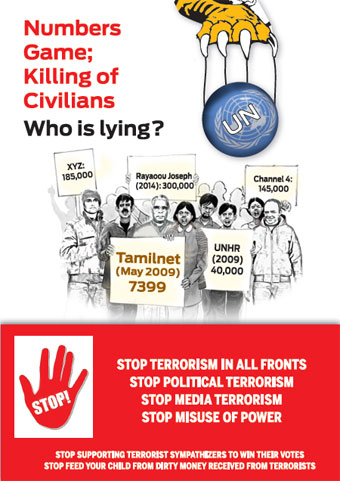Bill 104- Tamil Genocide Education Week Act, 2019- Ontario Canada – Challenged
Dr. Neville Hewage, Ph.D., a policy analyst, with a Ph.D. from Laurentian University, Canada and an adjunct professor at the Department of Law and Justice, Laurentian University have prepared a comprehensive submission against the so called Bill 104 – Tamil Genocide Education Week Act, 2019- Ontario Canada.
The submission had been submitted to Committee Clerk of the Standing Committee on Regulations and Private Bills of the Legislative Council of Ontario.
Dr. Hewage argued that according to facts on the Bill 104, the Tamil genocide claim has failed against the legal test and should, thus, not be considered for 3rd reading by the Parliament of Ontario.
The Bill 104 states that Tamil-Ontarians have families still suffering in their “homeland” in the North and East of the island of Sri Lanka. They have lost their loved ones and have been physically or mentally traumatized by the Genocide that the Sri Lankan state perpetrated against the Tamils during the civil war, which lasted from 1983 to 2009, and especially so in May of 2009.
The Bill 104 states acts of Genocide against the Tamils started in 1948 after Sri Lanka gained its independence and were perpetrated through Sinhala-Buddhist centric government policies, pogroms, land grabs and ethnic cleansing.
The Bill 104 further states the United Nations Organization estimates that in May 2009 alone, about 40,000 to 75,000 Tamil civilians were killed. Other estimates place the death toll at 146,679 civilians. These figures only reflect the death toll in 2009 leading up to May 18, the day on which the civil war ended. The loss of Tamil civilian lives during the Genocide, which continued for decades in Sri Lanka, is much higher.
Bill 104 further states, the Sri Lankan state has systematically disenfranchised the Tamil population of their right to vote and to maintain their language, religion and culture. For
example, the Sinhala only Act of 1956 made Sinhalese the official language of Sri Lanka,
ignoring the 29 percent of the population whose primary language was Tamil, thereby putting them at a serious disadvantage for participating in the public service of Sri Lanka.
Professor Hewage is challenging the legality of the Bill and factual correctness and overall credibility of the content and purpose of the Bill.
The full report submitted by Dr. Hewage is as follows;
329 Viewers








